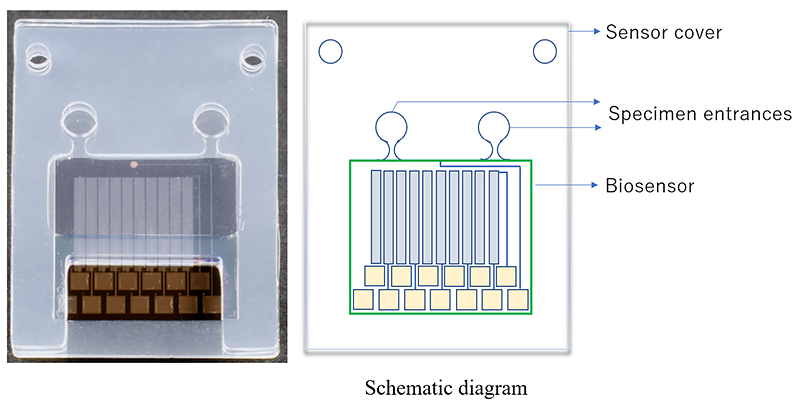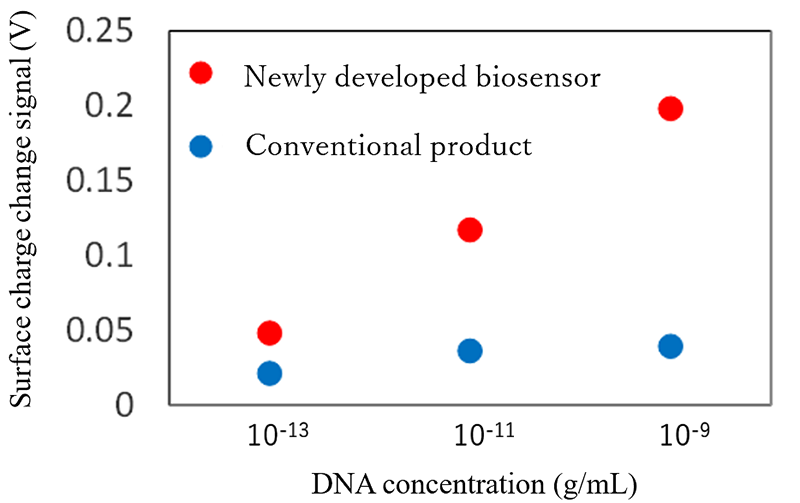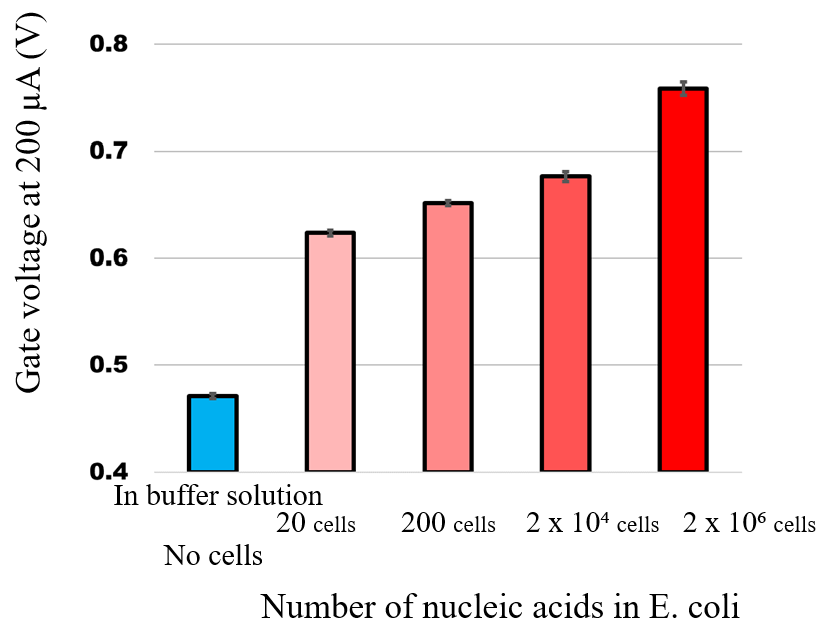Commenced Commercialization of a Biosensor That Uses a Solid-Electrolyte Thin-Film Transistor
- Simultaneous Detection of Multiple Nucleic Acids and Pathogens in a Short Time -
 |
| Mitsubishi Materials Corporation Japan Advanced Institute of Science and Technology |
Mitsubishi Materials Corporation together with Professor Yuzuru Takamura and Assistant Professor Daisuke Hirose of the Bioscience, Biotechnology, and Biomedical Engineering Research Area at Japan Advanced Institute of Science and Technology (Nomi City, Ishikawa Prefecture) have developed a biosensor that uses a novel solid-electrolyte thin-film transistor and have started on product development towards its practical use.
Genetic testing in the medical field generally uses methods of testing that amplify nucleic acids such as the polymerase chain reaction (PCR) method, but their application is limited by the high cost and large size of testing equipment.
Mitsubishi Materials has long been engaged in research and development to form thin films on a variety of materials including metals and oxides and has advanced technological capabilities in the materials development for thin film preparation by wet deposition. In this joint development, the technology has been applied to develop a new biosensor that uses a proprietary solid-electrolyte thin-film transistor as the detector (see the schematic diagram).
With this biosensor, test results can be obtained in a shorter time than with PCR or other amplification methods by detecting voltage changes caused by microcharges. In addition, multiple sensor elements can be arranged in parallel by using microfabrication technology, which enables simultaneous detection of multiple nucleic acids and pathogens. Furthermore, the small size of the solid-electrolyte thin-film transistor itself enables the miniaturization of biosensors, which is expected to expand applications for biosensors in the future.
From now on, we will expand the types of nucleic acids that can be measured, work on commercialization of sensors capable of simultaneous detection of pathogens including multiple types and promote product development for practical use.
Based on its corporate philosophy of "For People, Society and the Earth." Mitsubishi Materials will continue to help build a prosperous society through developing and providing high value-added products in the fields of non-ferrous metal materials and life healthcare.
 Newly developed biosensor
Newly developed biosensor
[Performance]
When negatively charged nucleic acids are specifically adsorbed on the surface of a solid-electrolyte thin-film transistor, a change in surface charge occurs and the voltage change corresponding to that change can be read as a large signal. (See Figure 1)
 Figure 1: Signal enhancement by newly developed product
Figure 1: Signal enhancement by newly developed product
We have confirmed that dilute nucleic acids in E. coli can be detected without amplification using the solid-electrolyte thin-film transistor. (See Figure 2)
 Figure 2: E. coli detection results
Figure 2: E. coli detection results
Related information
The solid-electrolyte thin-film transistor introduced in this release was published in the following Journal.
Journal of Applied Physics 127, 064504 (2020)
May 19, 2023
